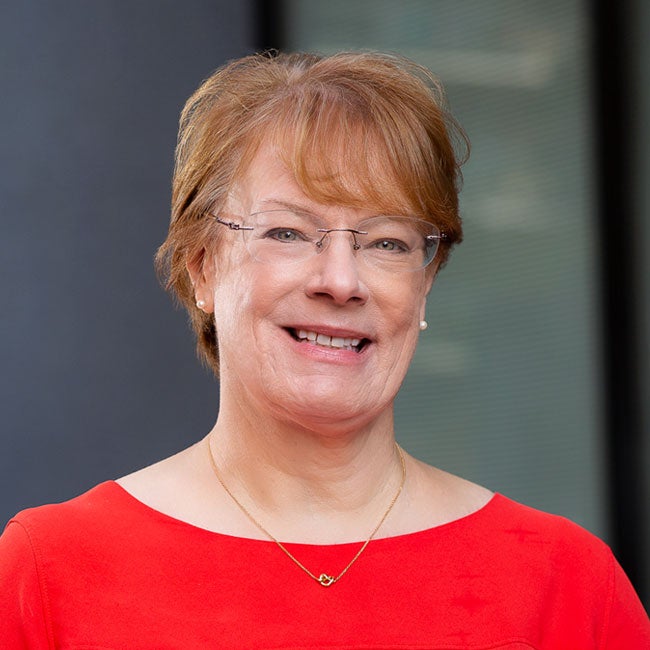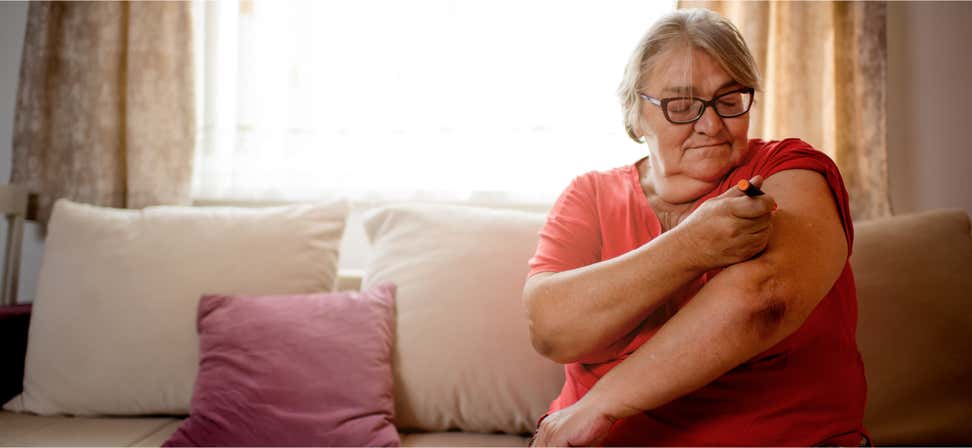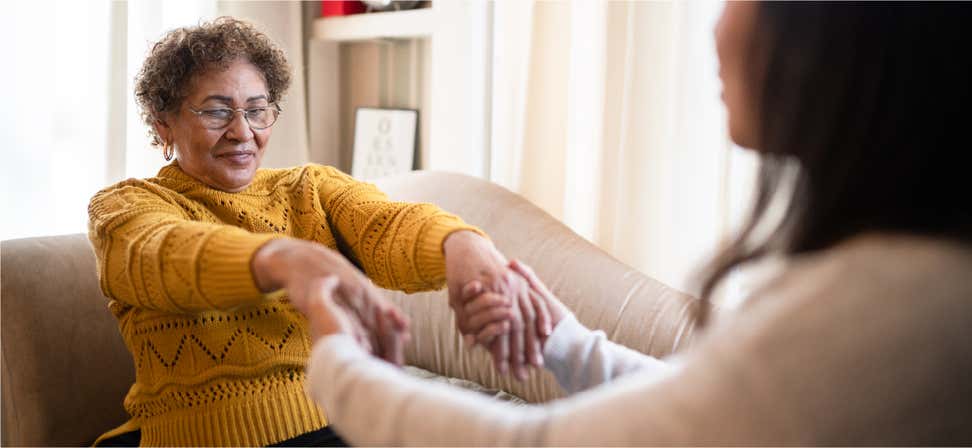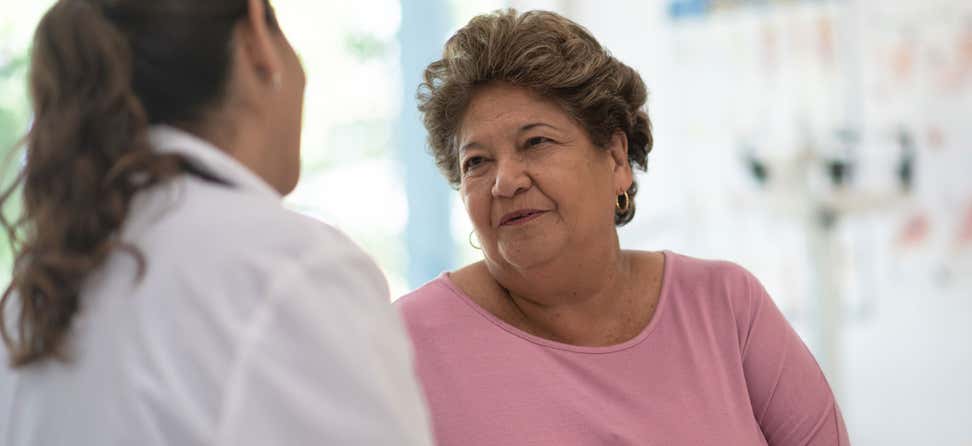Key Takeaways
LGBT older adults have higher rates of chronic conditions and other health-related problems, as they've have faced discrimination in health care.
Learn more about the three most common types of chronic conditions LGBT older adults are at higher risk for.
Programs, like the Chronic Disease Self-Management Program, can help LGBT older adults build the skills to manage a chronic condition.
Chronic conditions can be difficult to manage at the best of times, but for many LGBT older adults, barriers to health care, lack of health insurance, and fear of discrimination by doctors threatens the healthy aging of a generation.
Studies suggest that LGBT older adults have higher rates of chronic conditions and other health problems, such as obesity, high blood pressure, high cholesterol, arthritis, cardiovascular disease, diabetes, and more. Because many LGBT older adults have faced discrimination in health care, they may delay doctor’s visits or necessary tests that would help them address these conditions.
Here’s an overview of the three common types of chronic conditions LGBT older adults are at higher risk for, some signs to watch for, and the actions to consider to protect your health.
Cancer
According to a 2011 national study on LGBT older adults, 19 percent reported having had at least one type of cancer. We also know:
- Lesbian, gay, and bisexual older adults are more likely to have risk factors associated with breast, cervical, testicular, prostate, and colon cancer.
- Gay and bisexual men are at higher risk of human papilloma virus (HPV), and while often under-estimated, HPV is very serious—often leading to cervical and anal cancer.
According to a 2011 national study on LGBT older adults, 19 percent reported having had at least one type of cancer.
Early detection of cancer is key to successful treatment. Whether or not you’re experiencing any symptoms, it’s best to get annual screenings. Gay and bisexual men also should ask their doctor specifically about routine tests for detecting HPV and anal cancer, which can easily spread through unprotected sex.
If you are concerned about sharing your sexual orientation with your medical professionals, visit the Gay and Lesbian Medical Association (GLMA) online health care directory to find a LGBT-friendly doctor in your area.
Mental health
LGBT people report high rates of stress, often related to systematic discrimination. This often leads to higher rates of smoking, alcohol use, drug use, depression, loneliness, and suicide.
If you are feeling depressed, isolated, or lonely, you aren’t alone. In the latest research, 59 percent of LGBT older adults report that they lack companionship, and 53 percent feel isolated. While loneliness may seem like it’s just part of life, it is not a normal part of aging and can impact your physical health and cognitive well-being.
If you are feeling depressed, or have ever thought about suicide, it’s time to talk with your doctor. According to SAGE—the country's largest and oldest organization dedicated to improving the lives of LGBT older adults—more than 50 percent of individuals in a national health study on LGBT elders had been diagnosed with depression by a health care provider, and 39 percent reported having had seriously considered suicide.
More than 50 percent of individuals in a national health study on LGBT elders had been diagnosed with depression by a health care provider
A supportive doctor can help you explore healthy avenues for managing your symptoms. There might be anti-depressants or anxiety medications your doctor can prescribe. Or maybe it’s incorporating stress-relieving activities into your life, and taking steps to combat loneliness. These might include:
- Meditation, yoga, and regular exercise to release endorphins and those “feel good” brain chemicals
- Venting your feelings with someone you trust, like a friend or therapist, or joining a support group
- Finding purposeful opportunities to get out and socialize, such as visiting your local senior center or volunteering
- Being mindful of what you put in your body—remember that alcohol is a depressant, and research suggests caffeine and unhealthy foods can impact your mood
Cardiovascular diseases
Heart disease is the number-one killer of all genders, impacting the lives of 29 percent of adults aged 65+. Among men, major risk factors for heart disease are smoking and alcohol use—both of which are prevalent among gay men. For lesbians, risk factors for heart disease include obesity, smoking, and physical inactivity.
Heart disease is the number-one killer of all genders, impacting the lives of 29 percent of adults aged 65+.
Take charge of your heart health by improving your diet, increasing your exercise, managing your stress, and curbing alcohol and smoking.
If you are concerned about your risk factors, or have family history of cardiovascular diseases, talk with your doctor and get screened for hypertension, high cholesterol, and diabetes—all of which can lead to heart disease.
A special note about heart disease for people in the transgender community: It is unclear if the use of hormones can also put you at greater risk of a stroke or heart attack. Some studies suggest that cardiovascular risk is unchanged among transgender men using testosterone. However, evidence in transgender women is less clear. The long-term effects of hormone treatment are also uncertain. Along with all the regular steps to take charge of your heart health, make sure to ask your doctor if there are signs or symptoms you should watch for as you age.
More information on how to manage your chronic conditions as an LGBT older adult
NCOA's friends at SAGE run a national resource center on LGBT aging. They have an excellent healthy aging toolkit with many resources for LGBT older adults.
If you have been diagnosed with a chronic condition, programs are available in your community, like the Chronic Disease Self-Management Program (CDSMP), which can help you build the skills to manage them. CDSMP is a six-week, interactive, small-group workshop that helps participants build the skills necessary to control how chronic conditions affect their life.
Sessions focus on dealing with fatigue, frustration, or isolation; maintaining strength and physical activity; managing medications; communicating with health care professionals; and healthy eating. The workshops can be completed in-person at a local organization in your community or even online. To learn more about workshops in your community, contact your local area agency on aging.











